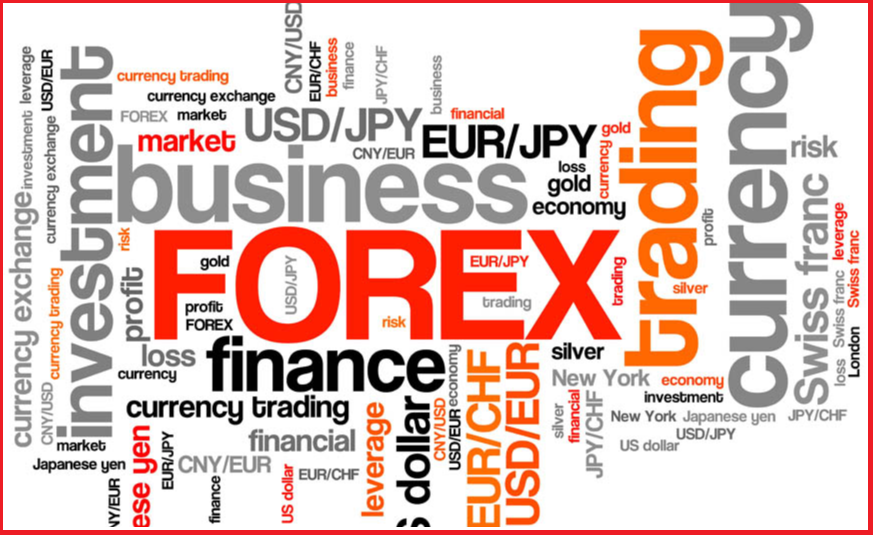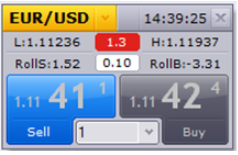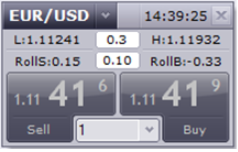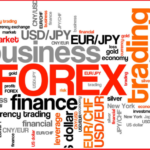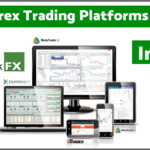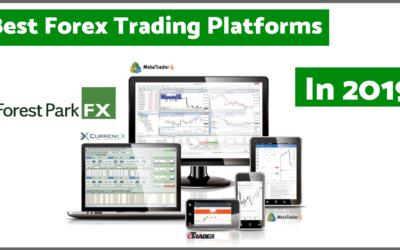6 Things to Consider Before Choosing an FX Trading Broker
6 Things to Consider Before Choosing an FX Trading Broker
Choosing between different Forex trading brokers can be a difficult task. There are many factors that go into selecting the best Forex broker for your account. It might sound as simple as selecting the broker who offers the tightest spread and the highest leverage, but much more should go into the decision making process. Below are six things you should consider before opening an account with a trading broker. If you consider these six vital aspects, you are likely to avoid choosing the wrong FX trading broker.
1. Which Pricing Model Is Right for You?
The two main pricing models for Forex traders are All In Pricing and Raw Spread + Commission Pricing. Another name for Raw Spread + Commission Pricing that may be more familiar to you is ECN (Electronic Communication Network) Pricing Model. These two pricing models are offered with many Forex brokers. When choosing between these two pricing models and determining which model is right for you, it is important to consider total trading costs and how a tighter or wider spread may affect the triggering of resting orders (stop and limit orders).
Below are simultaneous screenshots of FXCM’s two pricing models (All In Pricing vs. Raw Spread + Commission Pricing).
All in Pricing Raw Spread + Commissions
On the left, the total cost of trading is the spread, or 1.3 pips. 1.3 pips in the EURUSD is equivalent to $13 per 1 standard lot round turn.
On the right, the total cost of trading is the Raw Spread + Commission (in this instance $4/lot/side or in Eur/Usd terms, 0.8 pips) or 1.1 pips.
In this example, it is clear that the lower cost of trading can be realized with the Raw Spread + Commission (a savings of 0.2 pips). 0.2 pips is equal to $2 for every 1 standard lot round turn on the EURUSD. This savings can have a significant impact for higher volume traders.
There is another benefit to this pricing model, as well. Imagine that you have a buy limit order at 1.11418 or conversely a sell stop at 1.11412. With the All In Spread, your limit order would not be triggered and your stop order would, while on the Raw Pricing + Commission, your limit order would be triggered and your stop order would not.
For those who trade with resting limit and stop orders in the market, it is preferable (all else being equal) to choose a trading broker that allows you to trade Forex pairs on Raw Pricing + Commissions. You are more likely to have your take profits triggered and less likely to have your stop losses hit as a result of the tighter spread.
This is just one factor, though, when choosing a Forex trading broker. It is important when choosing a broker to consider each of the options outlined in this article and weigh the importance of each one as it pertains to your particular FX trading strategy.
2. Execution Model – Dealing Desk vs. Non-Dealing Desk
Execution is an important component when selecting a trading broker. There are generally two types of execution models: Dealing Desk and Non-Dealing Desk. A Dealing Desk execution model is one in which the trading broker acts as the counterparty to each of your trades (think, “when you buy Eur/Usd, the broker sold it to you”).
Generally, the Dealing Desk broker will make its money through the spread and managing the risk associated with taking the opposite of its clients’ positions. A Non-Dealing Desk execution model is one in which your trading broker aggregates pricing from a variety of liquidity providers and then shows you the best bid and offer. The Non-Dealing Desk broker will generally make its money by charging a commission.
Over the years, conspiracy theorists like to argue that Dealing Desk brokers are manipulating pricing to trigger client stop losses and otherwise cause the client to lose money. While that may have been the case years ago (and perhaps still today with unscrupulous brokers), most Dealing Desk brokers are providing a fair trading environment like their Non-Dealing Desk broker counterparts.
The benefits of trading against a Dealing Desk are often instant execution on all trades up to a certain size, whereas trading on a Non-Dealing Desk will typically offer lower costs of trading but include slippage where there is insufficient liquidity at a particular price. The drawbacks are a typically slightly higher all in costs of trading than trading with a Non-Dealing Desk.
3. Trading Broker Platforms – MT4, Proprietary or Third Party?
Choosing a trading broker platform is a big question mark for many traders. When it comes to choosing between a trading broker’s proprietary platform, MT4 or some third party plugin such as cTrader or TradingView, our initial advice is to use the Forex trading platform which is most comfortable for you when trading. Forex trading is hard enough, so don’t further complicate matters by using a trading platform with which you are unfamiliar.
But for those who are just entering the Forex market and coming in with a clean slate, our approach follows this line of thought:
- If you use a mentor or Forex trading educator and they trade on a certain platform, it is generally better to stay with that platform so you are comparing apples to apples when reviewing charts and discussing trades.
- If you are a discretionary trader, most proprietary platforms are more conducive and intuitive to use than MT4. MT4 was built specifically to cater to new retail Forex traders and algorithmic traders. It does not contain many of the advanced features that most proprietary platforms contain. Conversely, if you are using or developing an Expert Advisor or custom indicator, MT4 is a very good platform. It offers a very flexible and easy to use coding language.
If you are still undecided, choose the broker’s proprietary platform as our experience tells us that it is a more reliable and stable platform. This is because MT4 requires many third party pieces of software in order to properly connect to liquidity providers and can be prone to having bugs. MT4 was not initially built to be connected with Tier 1 liquidity providers. As such, it does not have a FIX API, which is the standard connection to these liquidity providers.Ultimately, most FX broker platforms will offer the same functionality and display the same data. Find your comfort zone and focus on trading rather than your trading platform. The last thing a trader needs is to be trading during a highly volatile market and be scrambling trying to figure out how the platform functions. On that note, it is important to familiarize yourself with the platform that you ultimately choose. All brokers offer a demo trading platform. Once you select a Forex trading platform to use, make sure that you spend the time learning the functionality of that platform in the demo environment.
4. Which Regulatory Body Is Appropriate?
One of the most important items when selecting a trading broker is regulation. At Forest Park FX, we always advocate for traders to work with brokers who are supervised and well regulated. This typically includes brokers regulated by NFA, FCA, and ASIC.
- NFA (National Futures Association) – Oversees United States Forex and Futures trading.
- FCA (Financial Conduct Authority) – Oversees United Kingdom Forex and Futures trading.
- ASIC (Australian Securities and Investment Commission) – Oversees Australian Forex and Futures Trading.
That doesn’t mean that brokers regulated in these jurisdictions are all good, and it doesn’t mean that brokers regulated in other jurisdictions are all bad. But, it should make you stop and think why there are so many startup brokers in Cyprus, New Zealand, South Africa or other jurisdictions – The reason is that it is much easier for brokers to get registered in these jurisdictions as they tend to have lower capital requirements, looser policies and procedures, and limited oversight, and enforcement powers. This is good for the broker but bad for you as the client. Where you have minimal protections as a client, expect bad things to happen.
All of the major regulatory jurisdictions have stringent requirements to get regulated and stay regulated. Each of the three highly-respected regulatory bodies mentioned above have high minimum capital requirements. In the United States, for example, to be a regulated Forex broker with the NFA, a firm is required to have a minimum capital requirement of $20 million. Compare this to the lessor regulatory bodies that sometimes have capital requirements of only $5,000.
Additionally, each of these regulators require post trade reporting and have very strict client deposit rules. Each broker in these jurisdictions is required to keep all of their customer deposits with large, well-established banks with strong balance sheets. In some regulatory jurisdictions, all client funds are required to be segregated from the brokers own operating capital. This assures that client funds are only being used for that client to meet margin trading requirements with the trading broker. Additionally, with FCA regulated brokers, retail traders’ funds are insured up to £50,000 under the Financial Services Compensation Scheme or FSCS.
Often times the unregulated or under-regulated brokers have appealing offerings on the surface, such as deposit bonuses or extremely high leverage, but trading conditions and withdrawals can present problems. It is best to avoid them all together and stick with strongly regulated brokers.
5. Which Trading Broker Best Suits Your Trading Style?
Trading styles, like brokers, vary greatly. You have high frequency traders (HFT), arbitrageurs, scalpers, price action traders, intraday traders, swing traders, position traders, hedge traders and others.
The way you are wired will influence your success in trading. It should also be considered when choosing a trading broker. By drawing upon your strengths, you can enhance your success as a trader. When you trade according to a style that counters your cognitive wiring, as well as your social and emotional preferences, this leads to frustration and translates into inconsistent performance. Your trading style has an array of dimensions that relate to:
- How you manage risk
- How you pursue reward
- How you analyze markets
- How many markets you can research extensively
- How you pinpoint trading opportunities
- How many positions you can carry
- How you express your views in markets
Your investment style is directly correlated with your actual trading performance. Your style may evolve over time, but generally, it remains stable. As a newbie to the trading scene, you will likely piggyback off the trading styles of those who have gone before you to find success. If it works for them, it should work for you, right? This isn’t always necessarily the outcome. It is believed that a lack of developing your own signature style for Forex trading can lead to failure. Even if you do develop your own style, it must align with your emotional and cognitive makeup for you to find success in trading. More so, the trading broker you choose must provide tools and features that optimize your preferred trading style.
As you begin trading, it’s pertinent to give each trading strategy ample time so you can analyze its effectiveness. Switching from one trading style to the next is often frustrating and leads to quick failure. What you must realize is that even the most successful traders are only right about 50 percent of the time. When you enter a market without a clearly-outlined trading style, you will come to doubt yourself. Expertise in trading is not going to come overnight. It must be developed. You can’t expect elite returns without first becoming competent about what you’re doing.
Choosing the correct trading broker for your trading style can make the difference between success and failure. Liquidity, execution quality, execution speed, and pricing are key factors to consider in choosing a broker.
If you are a high volume trader who is in and out of the market quickly, then fast execution and low costs of trading are two of the most important factors for consideration. If your strategy is built on long-term position trades, you will want to consider the swap rates and price stability of a broker through all market conditions (liquid, illiquid, news events, and rollover).
Once you know who you are as a trader and the strategy you plan to deploy, you can then ask the right questions to the trading brokers you are considering or your introducing broker who can help you to find the right fit for your strategy.
|
|
|
6. Can An Introducing Trading Broker Add Value?
Not all introducing brokers operate with integrity and the trader’s best interests at heart. Some will only introduce you to the trading broker where they make the most money. Some will markup your costs of trading. Some will revenue share with the broker and hope you lose money. These are obviously not brokers that are adding value to you. Like anything else in life, having a roadmap and a trusted guide can help you avoid the pitfalls in choosing a broker.
At Forest Park FX, we have an intimate knowledge of the FX trading broker landscape and can help all different types of traders find the right fit for them. You can open an account through our cash back rebate trading broker program, which will reduce your costs of trading below what you would get by opening an account directly with the trading broker and the concept of strength in numbers.
As an individual trader you are one account, one voice. But by working with a well-respected and large introducing broker that introduces hundreds of clients to that trading broker, you benefit from the other clients we have introduced to that broker and the prospect of all the additional clients we will introduce to that broker. Because Forest Park FX is a major referral source for our brokers, they know that our clients must be treated with the highest level of professionalism and fairness or they risk losing Forest Park FX as an introducing broker.
Choosing market direction is hard enough. Let Forest Park FX help you choose your trading broker.
About Forest Park FX
Forest Park FX is a CFTC registered, NFA member Forex introducing brokerage firm. With an experienced staff of industry professionals, Forest Park FX specializes in creating custom FX brokerage and trading solutions for retail traders, service providers, institutional traders, money managers and hedge funds.
Forest Park FX offers a wide variety of value-adding services, including market access through the world’s top Forex brokers, cash back rebates for Forex traders, built-to-specification trading algorithms, administrative and operational support for money managers and customized liquidity for hedge funds and high volume traders.
Risk Disclaimer
Before deciding to participate in the Forex market, you should carefully consider your investment objectives, level of experience and risk appetite. Most importantly, do not invest money you cannot afford to lose.
There is considerable exposure to risk in any off-exchange foreign exchange transaction, including, but not limited to, leverage, creditworthiness, limited regulatory protection and market volatility that may substantially affect the price, or liquidity of a currency or currency pair. Moreover, the leveraged nature of Forex trading means that any market movement will have an equally proportional effect on your deposited funds. This may work against you as well as for you.
The possibility exists that you could sustain a total loss of initial margin funds and be required to deposit additional funds to maintain your position. If you fail to meet any margin requirement, your position may be liquidated and you will be responsible for any resulting losses. Ambassador Capital Management, LLC (d/b/a Forest Park FX) is registered with the Commodity Futures Trading Commission as an Independent Introducing Broker and is a member of the National Futures Association (ID# 0457189).
